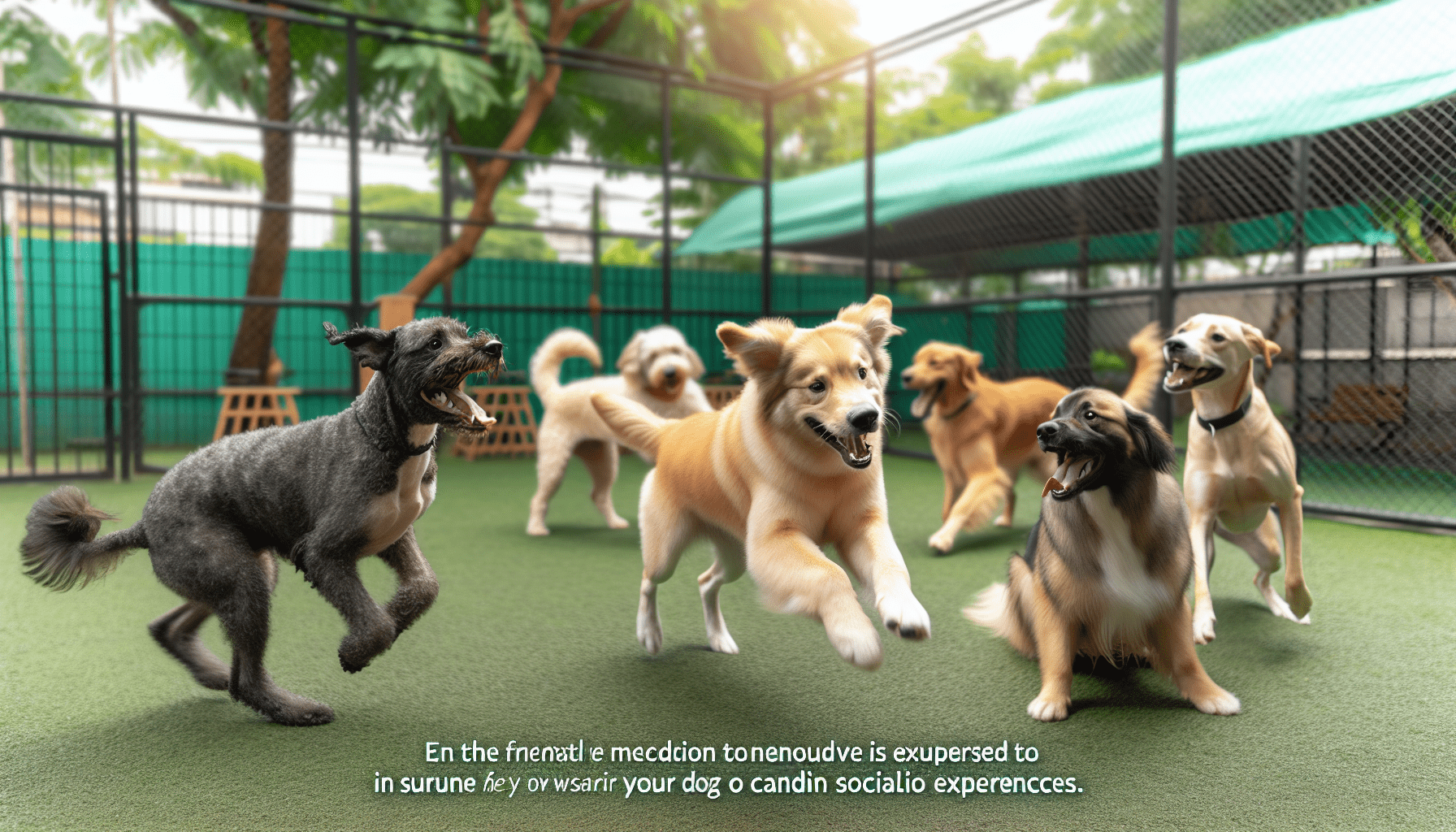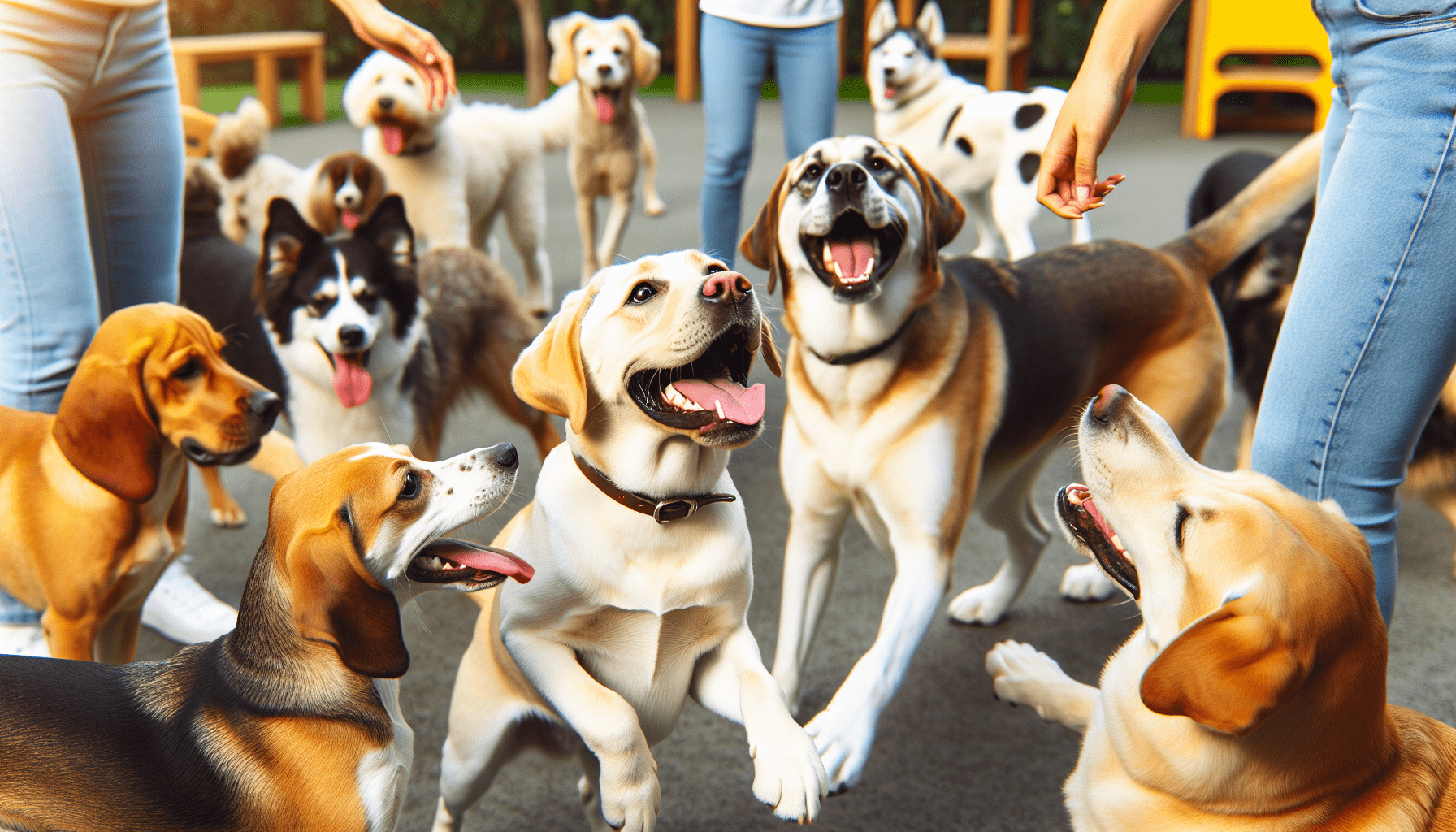Welcome to an article dedicated to helping you socialize your furry best friend! Socializing your dog is essential for their mental and emotional well-being, as well as for creating a well-behaved and happy companion. In this article, we will explore the top ways to socialize your dog and provide you with practical tips to help your pup become the life of the party at the dog park or wherever they go. Let’s dive in and learn how to make your dog a social butterfly!
Have you ever wondered how to help your furry friend build social skills?
Dogs are social animals, and just like humans, they need interaction with others for their overall well-being. Socializing your dog is essential for their mental and emotional health. It can also help prevent behavioral issues such as aggression or anxiety. So, how can you socialize your dog in the best possible way? Let’s explore some top methods to help your furry friend become a social butterfly!

Why is Dog Socialization Important?
Socialization is essential for dogs to develop good behavior and positive interactions with other animals and people. When a dog is well-socialized, they are more likely to be well-adjusted, friendly, and confident in different situations. Early socialization can also help prevent fear and aggression towards unfamiliar people, animals, and environments.
The Benefits of Dog Socialization
Socialization has numerous benefits for your dog, including:
- Improved behavior and obedience
- Reduced fear and anxiety
- Better communication with animals and humans
- Enhanced mental stimulation
- Increased confidence and adaptability
When Should You Start Socializing Your Dog?
The critical period for socializing puppies is between 3 to 14 weeks of age. During this time, puppies are most receptive to new experiences and will be more likely to adapt positively to various situations. However, socialization should be an ongoing process throughout your dog’s life to ensure they remain friendly and well-adjusted.
Socializing Adult Dogs
If you have adopted an adult dog, don’t worry! While it may take more time and patience to socialize an older dog, it is still possible. With consistent training and positive experiences, adult dogs can learn to socialize and engage with others in a healthy way.
Top Ways to Socialize Your Dog
Now that you understand the importance of dog socialization let’s dive into the top ways to help your furry friend develop their social skills effectively.
1. Puppy Classes
Puppy classes are a fantastic way to introduce your young dog to other puppies and humans in a controlled environment. These classes typically focus on basic obedience training and socialization skills, allowing puppies to learn how to interact with each other in a positive way.
2. Dog Parks
Dog parks are great places for dogs to socialize and burn off excess energy. However, it’s essential to choose a dog park that is safe and well-maintained. Always supervise your dog while at the park and be mindful of their interactions with other dogs to ensure they are positive and friendly.
3. Playdates
Organizing playdates with other friendly dogs can be a fun and effective way to socialize your furry friend. Invite friends or family members with well-behaved dogs over for a playdate in a fenced-in backyard or a neutral territory. This allows your dog to interact with other dogs in a relaxed and controlled environment.
4. Dog-Friendly Events
Attending dog-friendly events such as festivals, charity walks, or pet expos can be a fantastic way to expose your dog to a variety of people and animals. These events provide a great opportunity for your dog to socialize in a different setting and experience new sights, sounds, and smells.
Socialization Tips for Success
To ensure successful socialization for your dog, here are some essential tips to keep in mind:
1. Start Early
Early socialization is crucial for puppies to develop good social skills. Expose your puppy to different environments, people, and animals as early as possible to help them become confident and well-adjusted adults.
2. Positive Reinforcement
Use positive reinforcement such as treats, praise, and toys to reward your dog for good behavior during socialization. This will help your dog associate positive experiences with social interactions and encourage them to continue engaging with others.
3. Gradual Exposure
Gradually expose your dog to new experiences and environments to prevent overwhelming them. Start with low-stress situations and gradually increase the level of difficulty as your dog becomes more comfortable and confident.
4. Consistency is Key
Consistency is essential when it comes to socializing your dog. Make socialization a regular part of your dog’s routine and practice it consistently to reinforce positive behavior and interactions.

Common Mistakes to Avoid
While socializing your dog, there are some common mistakes that pet owners often make. Avoiding these mistakes can help ensure a positive socialization experience for your furry friend.
1. Forcing Interactions
Forcing your dog to interact with other animals or people can cause stress and anxiety. Allow your dog to approach new experiences at their own pace and comfort level to ensure positive social interactions.
2. Skipping Training
Proper training is essential for successful socialization. Skipping training or neglecting to teach your dog basic commands can lead to misunderstandings and conflicts during social interactions.
3. Ignoring Warning Signs
It’s essential to pay attention to your dog’s body language and behavior during socialization. Ignoring warning signs such as growling, barking, or retreating can lead to negative experiences and reinforce fearful or aggressive behavior.
4. Overwhelming Your Dog
Introducing your dog to too many new experiences at once can be overwhelming and counterproductive. Take it slow and allow your dog time to adjust to new environments and social interactions gradually.
Conclusion
Socializing your dog is a vital aspect of their overall well-being and development. By introducing your furry friend to a variety of people, animals, and environments through positive experiences, you can help them become confident, friendly, and well-adjusted companions. Remember to start early, use positive reinforcement, and be consistent in your socialization efforts to ensure success. With patience, love, and dedication, you can help your dog become a social butterfly in no time!

